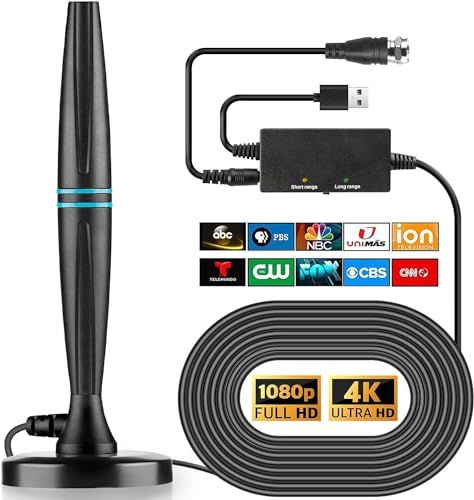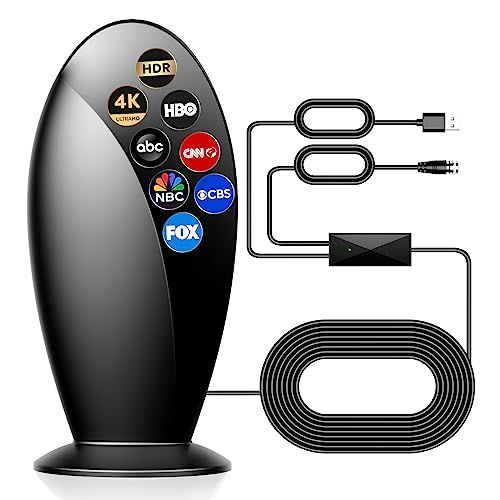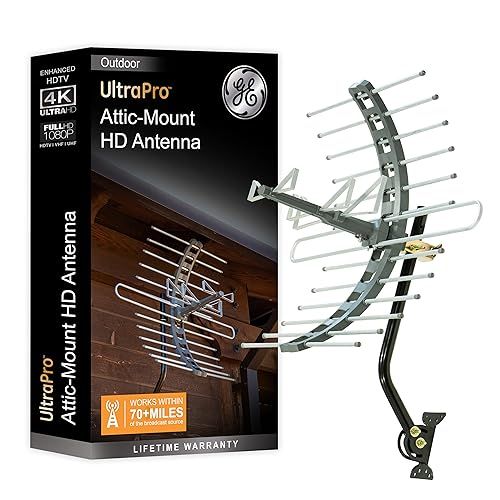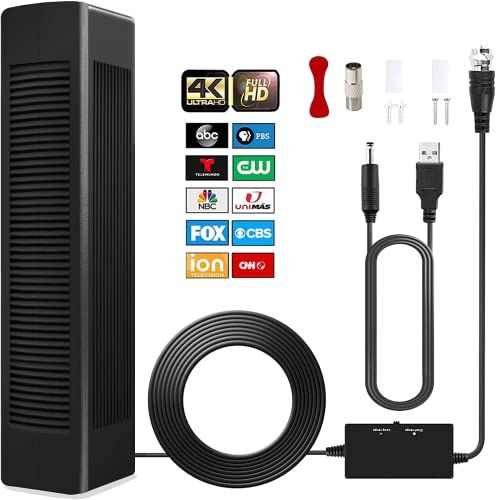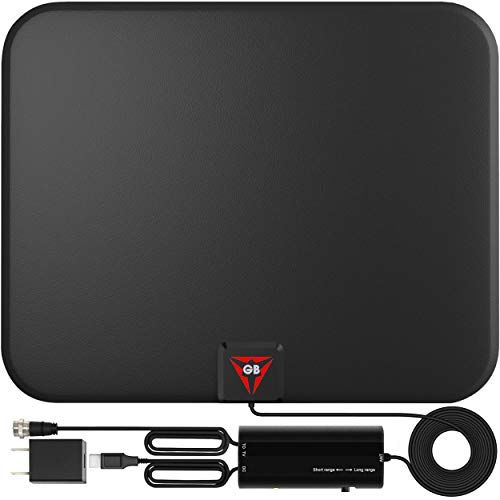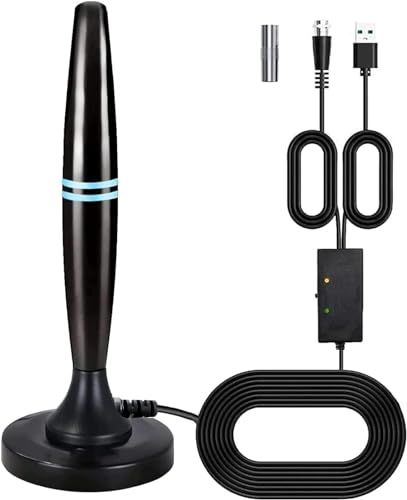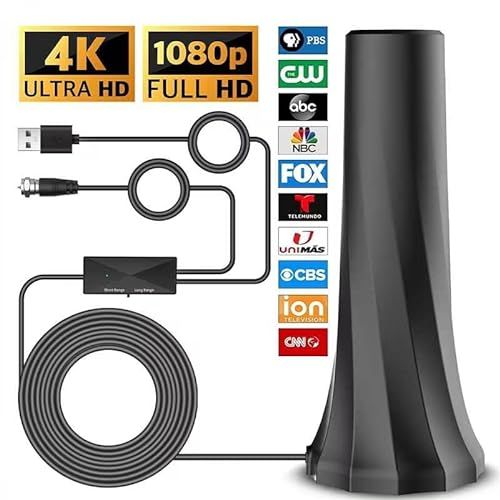
TV Antenna
Introducing the TV Antenna - your solution for crystal clear reception and unlimited access to all your favorite TV channels! Say goodbye to expensive cable bills and hello to FREE, high-definition entertainment. Our advanced technology ensures optimal signal strength, allowing you to enjoy seamless viewing of local network broadcasts, sports events, and more. Easy to install and compatible with any TV, our TV Antenna is the ultimate choice for hassle-free, cost-effective television experience. Upgrade your entertainment game today!
Product Info
Type
Digital TV antenna
Range
Up to 50 miles
Frequency Range
VHF 47-230MHz, UHF 470-862MHz
Signal Amplification
Yes
Cable Length
10 ft
Installation
Easy, requires no tools
Compatibility
Compatible with all digital TVs and converter boxes
PROS
- - Cost-effective: TV antennas are a one-time purchase with no monthly fees or subscriptions required. This makes them a more affordable option compared to cable or satellite TV services.
- - Wide range of channels: TV antennas can receive both local and national broadcast channels, providing access to a wide variety of programming. This includes popular network shows, news, sports, and more.
- - High-definition reception: Many TV antennas are capable of receiving high-definition signals, allowing users to enjoy crystal-clear picture quality for their favorite shows and movies. This can enhance the viewing experience compared to streaming services that may compress video quality.
CONS
- - Limited channel selection: One con of using a TV antenna is that the channel selection may be limited compared to cable or satellite TV. Depending on your location and the strength of the antenna, you may not have access to all the channels you desire, particularly if you live in a remote area with weak signals.
- - Weather interference: Another con is that TV antenna reception can be affected by weather conditions. Storms, heavy rain, or strong winds can cause signal interference, leading to poor picture quality or even complete signal loss. This can be frustrating, especially during important events or favorite TV shows.
- - Setup and adjustment: Setting up a TV antenna can be more complex and time-consuming compared to other TV streaming options. Finding the right position and angle for optimal reception may require trial and error, and adjustments may need to be made frequently to maintain a good signal. This process can be challenging for those who are not tech-savvy or have limited DIY skills.
Q&A
A1: Installing a TV antenna is a simple process. First, locate the best spot for antenna placement, preferably outdoors and as high as possible. Next, connect the antenna to your TV using a coaxial cable. Finally, perform a channel scan on your TV to find and program all available channels.
A2: The performance of a TV antenna depends on several factors, including the distance from broadcast towers, geographical obstacles, and interference. To determine if a TV antenna will work in your area, you can use an online signal coverage tool or consult the TVFool website, which provides information about local broadcast towers.
A3: Yes, a TV antenna can receive high-definition (HD) channels. Many broadcast stations transmit their signals in HD quality, and if your TV antenna is capable of picking up those signals, then you can enjoy HD broadcasts for free. However, make sure your TV is capable of displaying HD content to fully enjoy the improved picture quality.
